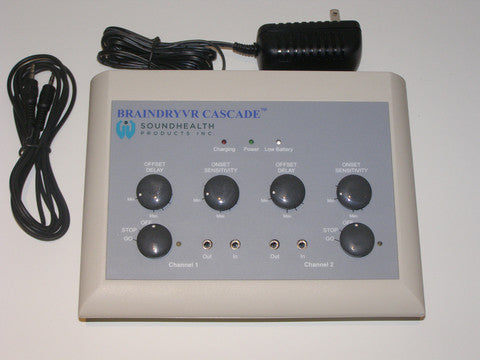Revealing the Secrets of the Mind Through qEEG Cerebral Mapping in Psychological Wellness Assessment
Revealing the Secrets of the Mind Through qEEG Cerebral Mapping in Psychological Wellness Assessment
Blog Article
Comprehending the human mind is a complex endeavor, particularly when it comes to mental health. Traditional approaches of evaluation often rely on interviews and surveys, which can occasionally miss important details about how the brain functions. This is where qEEG brainwave analysis, or qEEG, comes into play. qEEG is a specific method that assesses electrical signals in the cerebrum. By analyzing these brainwaves, mental health professionals can obtain valuable insights into a individual's psychological state, helping to enhance assessment and treatment.
qEEG works by applying small electrodes on the head to record neural signals. These sensors detect neural signals produced by neurons, the units in the cerebrum that communicate with each other. The information collected is then processed and presented as a set of waveforms. Each type of neural wave—such as alpha, beta, δ, and θ—corresponds to various psychological states and functions. For instance, alpha oscillations are commonly linked with relaxation, while β oscillations are linked to engaged cognition and issue resolution. By examining these patterns, healthcare providers can detect abnormalities that may suggest psychological health concerns.
One of the significant advantages of qEEG is its capability to offer objective data. Unlike traditional assessments that rely on personal reports from patients, qEEG offers a clear view of neural activity. This objectivity can help reduce prejudices in assessment and lead to more accurate treatment strategies. For example, if a patient is experiencing anxiety, qEEG can reveal particular trends of neural function that are linked with anxiety disorders. This information allows psychological health experts to customize treatments more efficiently, whether through therapy, medication, or other treatments.
Additionally, qEEG can be especially beneficial in tracking intervention advancement. By performing qEEG evaluations at various points during therapy, clinicians can track changes in brain function over period. This continuous evaluation assists ascertain if a intervention is working or if modifications are required. For instance, if a client is not reacting to a you could try this out specific treatment, qEEG may indicate that their neural function has not changed in a manner that suggests progress. This response cycle can result to more customized and efficient psychological health treatment.
In summary, qEEG cerebral mapping is a potent instrument in the domain of psychological health assessment. By providing objective data about brain activity, it enhances the understanding of various mental health conditions. This technique not only aids in precise assessment but also assists in monitoring treatment effectiveness. As mental health professionals continue to explore the potential of qEEG, it holds promise for improving the lives of individuals dealing with psychological health issues. With continuous research and advancements in technology, the mysteries of the brain may turn more apparent, resulting to better results for those in requirement of assistance.